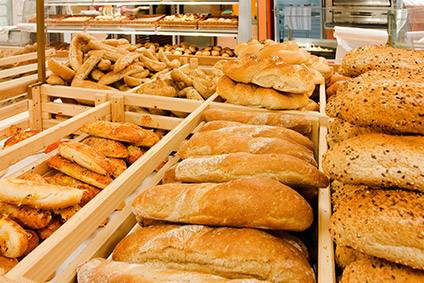
Food Drink Ireland (FDI), which represents companies in the country’s food and drink sector, has warned the Brexit trade deal agreed by the UK and the EU is having a negative impact on Irish bakery businesses.
FDI is concerned about the rules of origin element of the trade agreement, which the trade body says will result in tariffs being applied to flour imports and increased costs for the sector.

Discover B2B Marketing That Performs
Combine business intelligence and editorial excellence to reach engaged professionals across 36 leading media platforms.
It has called for a “derogation” for the Irish bakery sector in order to avoid the tariffs.
The issue relates to the rules of origin requirement that wheat used in bakery products should be of UK or EU origin, with a maximum tolerance of 15% for grain from other countries such as Canada or the US.
FDI director Paul Kelly said: “If the wheat used to make flour is more than 15% of third-country origin, the full tariff of EUR172 (US$208.7) per tonne becomes payable. This is a significant problem for the Irish bakery industry, which purchases flour from millers in Great Britain with a high proportion of third country wheat, mainly Canadian or US, which is rarely below the 15% tolerance level.”
Kelly points out there are no industrial milling options available in Ireland after the closure of a number of mills in recent years, meaning the country is not self-sufficient in flour. Some 80% of the flour used in the Irish baking sector is imported.

US Tariffs are shifting - will you react or anticipate?
Don’t let policy changes catch you off guard. Stay proactive with real-time data and expert analysis.
By GlobalData“This results in a distorted marketplace where a GB, Northern Irish or EU-based bakery competitor, using the same specification flour, but not facing the same tariff will be at a significant competitive advantage selling their finished product in the marketplace versus an Irish-based bakery. This is a problem uniquely faced by Irish-based bakeries,” he said.
FDI said the tariff would be equivalent to a 50% increase in product cost and could equate to a 9% consumer price increase in bread.
“In order to avoid distortion of trade and negative impacts on Irish consumers we are seeking a derogation for the Irish bakery sector from this specific rule of origin in order to deliver a tariff-free solution and put the businesses on a level playing field with UK and EU bakery competitors,” Kelly said.
just-food has asked the European Commission for a response to FDI’s request.





